Thomas Germer
Limited-Angle Tomography Reconstruction via Deep End-To-End Learning on Synthetic Data
Sep 13, 2023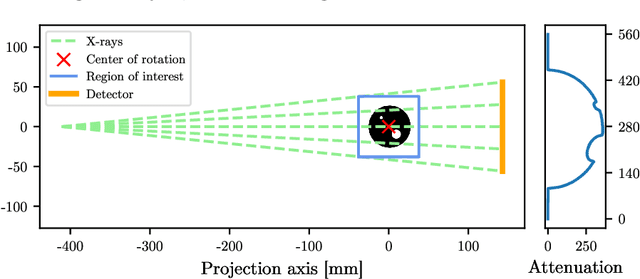

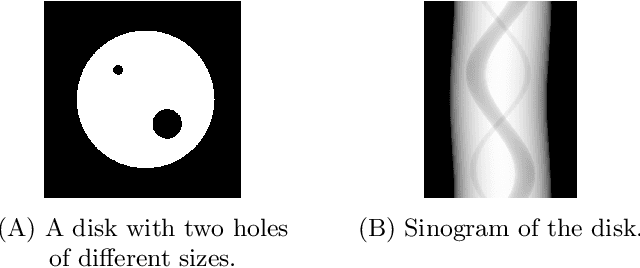
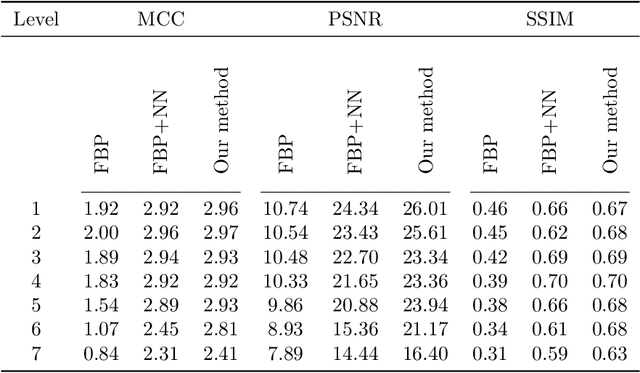
Abstract:Computed tomography (CT) has become an essential part of modern science and medicine. A CT scanner consists of an X-ray source that is spun around an object of interest. On the opposite end of the X-ray source, a detector captures X-rays that are not absorbed by the object. The reconstruction of an image is a linear inverse problem, which is usually solved by filtered back projection. However, when the number of measurements is small, the reconstruction problem is ill-posed. This is for example the case when the X-ray source is not spun completely around the object, but rather irradiates the object only from a limited angle. To tackle this problem, we present a deep neural network that is trained on a large amount of carefully-crafted synthetic data and can perform limited-angle tomography reconstruction even for only 30{\deg} or 40{\deg} sinograms. With our approach we won the first place in the Helsinki Tomography Challenge 2022.
Deblurring Photographs of Characters Using Deep Neural Networks
May 31, 2022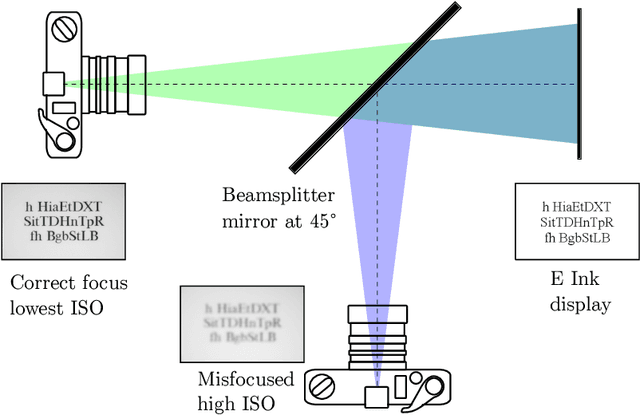
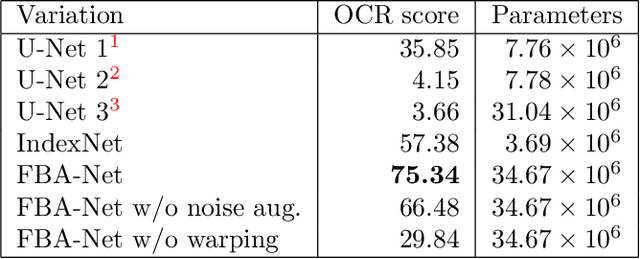

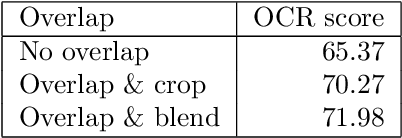
Abstract:In this paper, we present our approach for the Helsinki Deblur Challenge (HDC2021). The task of this challenge is to deblur images of characters without knowing the point spread function (PSF). The organizers provided a dataset of pairs of sharp and blurred images. Our method consists of three steps: First, we estimate a warping transformation of the images to align the sharp images with the blurred ones. Next, we estimate the PSF using a quasi-Newton method. The estimated PSF allows to generate additional pairs of sharp and blurred images. Finally, we train a deep convolutional neural network to reconstruct the sharp images from the blurred images. Our method is able to successfully reconstruct images from the first 10 stages of the HDC 2021 data. Our code is available at https://github.com/hhu-machine-learning/hdc2021-psfnn.
Fast Multi-Level Foreground Estimation
Jun 26, 2020



Abstract:Alpha matting aims to estimate the translucency of an object in a given image. The resulting alpha matte describes pixel-wise to what amount foreground and background colors contribute to the color of the composite image. While most methods in literature focus on estimating the alpha matte, the process of estimating the foreground colors given the input image and its alpha matte is often neglected, although foreground estimation is an essential part of many image editing workflows. In this work, we propose a novel method for foreground estimation given the alpha matte. We demonstrate that our fast multi-level approach yields results that are comparable with the state-of-the-art while outperforming those methods in computational runtime and memory usage.
PyMatting: A Python Library for Alpha Matting
Mar 25, 2020



Abstract:An important step of many image editing tasks is to extract specific objects from an image in order to place them in a scene of a movie or compose them onto another background. Alpha matting describes the problem of separating the objects in the foreground from the background of an image given only a rough sketch. We introduce the PyMatting package for Python which implements various approaches to solve the alpha matting problem. Our toolbox is also able to extract the foreground of an image given the alpha matte. The implementation aims to be computationally efficient and easy to use. The source code of PyMatting is available under an open-source license at https://github.com/pymatting/pymatting.
 Add to Chrome
Add to Chrome Add to Firefox
Add to Firefox Add to Edge
Add to Edge